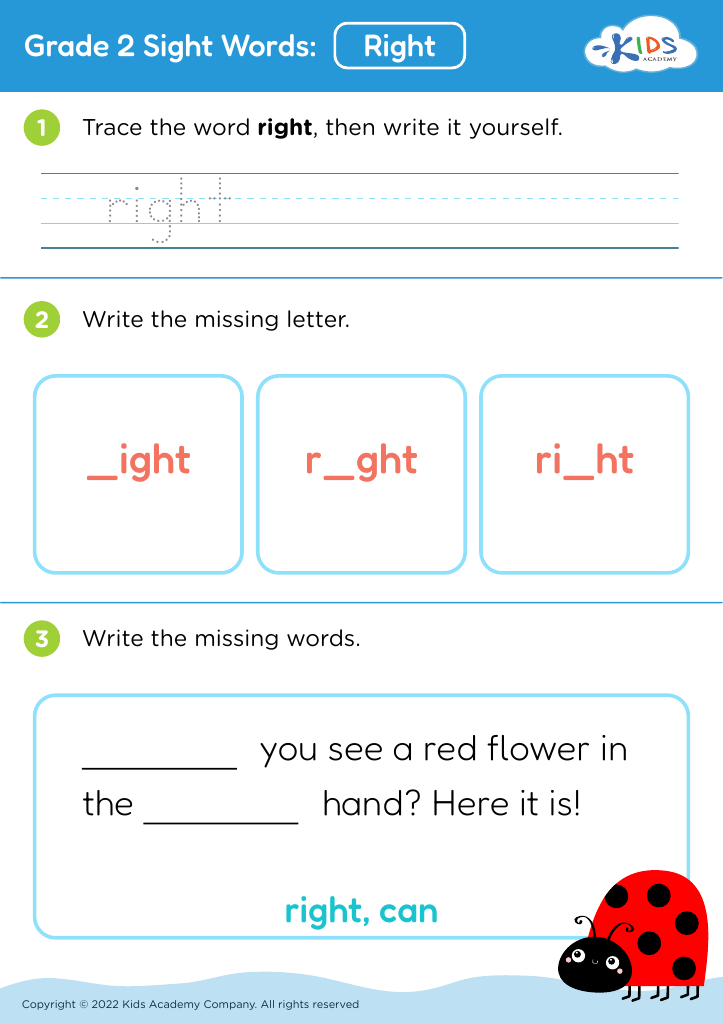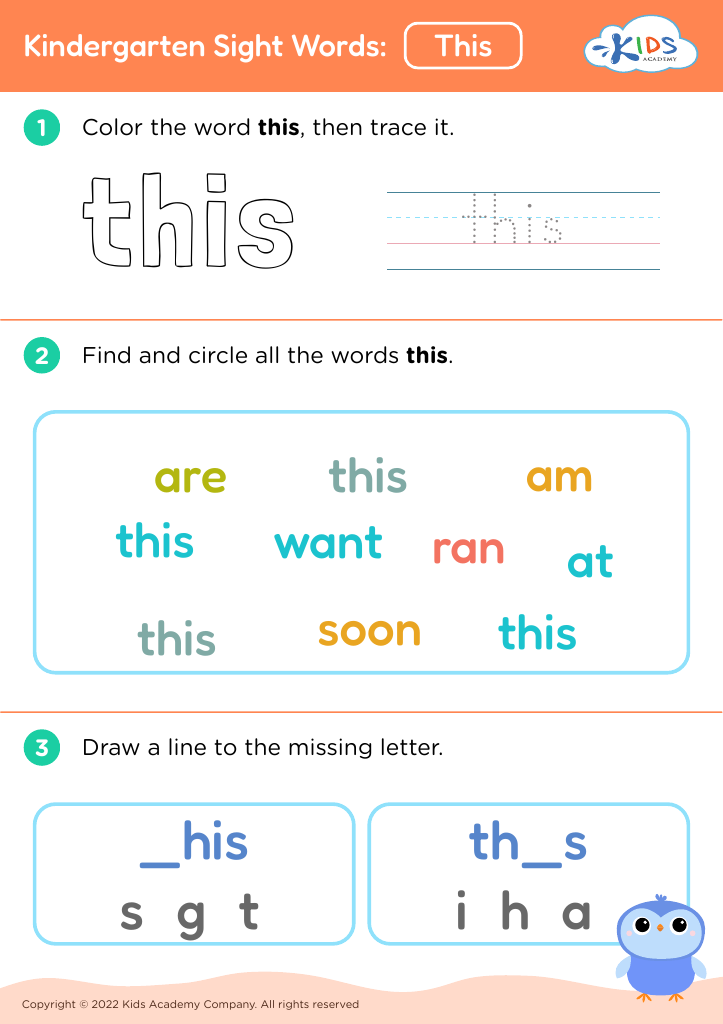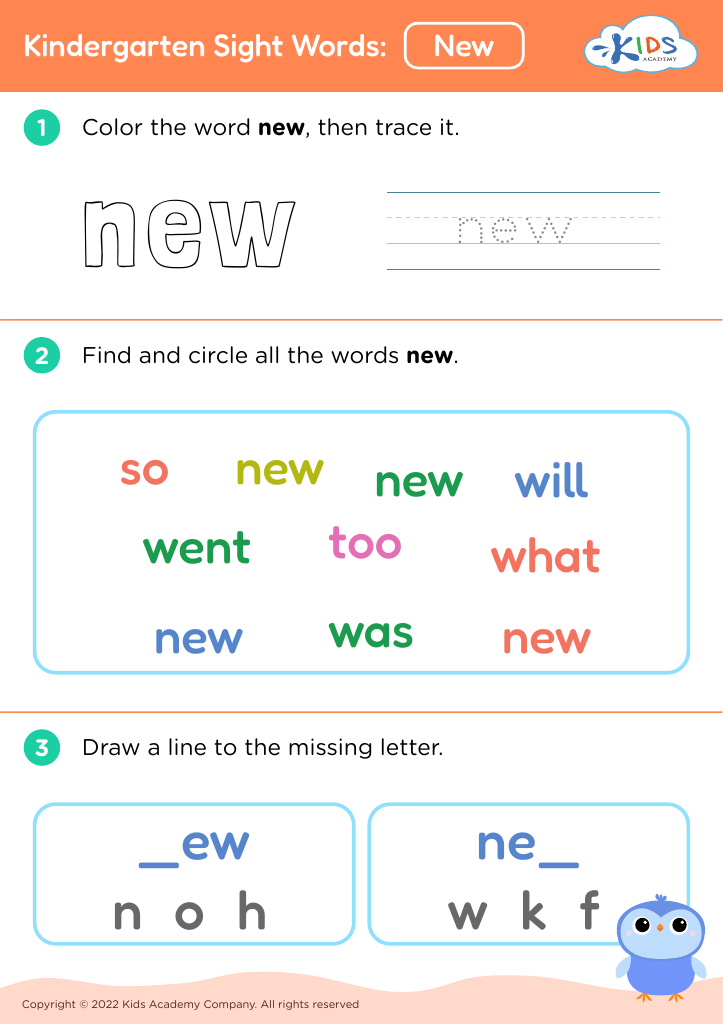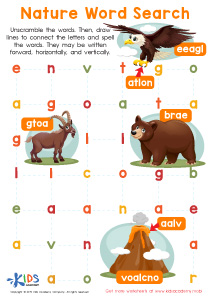Counting practice Sight Words Worksheets for Ages 4-7
5 filtered results
-
From - To
Enhance your child’s foundational skills with our Counting Practice Sight Words Worksheets, designed for ages 4-7. These engaging worksheets uniquely blend sight word recognition with counting exercises, making learning both enjoyable and effective. As children practice recognizing sight words while counting, they build essential literacy and numeracy skills simultaneously. Our resources are tailored to support early learners’ cognitive development, fostering a love for reading and numbers. With a variety of fun activities to choose from, kids will build confidence and competence in critical learning areas. Explore our Counting Practice Sight Words Worksheets today to boost your child’s learning journey!
Counting practice and sight words are foundational skills for young learners aged 4-7, and both play a critical role in a child's early education. For parents and teachers, fostering proficiency in these areas can have long-lasting effects on a child's overall academic success.
Counting practice helps children develop numeracy skills, which are essential for everyday life and later math learning. It enhances their ability to understand quantities, perform simple calculations, and lays the groundwork for more complex mathematical concepts. Engaging with numbers can also boost cognitive skills, problem-solving abilities, and self-confidence.
Similarly, sight words are crucial for reading fluency. These commonly used words—often difficult to sound out—form the backbone of many texts. By memorizing these words, children can develop smoother reading habits, allowing them to focus on comprehension instead. This not only cultivates a love for reading but also increases their ability to engage with a wider range of literature as they progress in school.
Ultimately, prioritizing counting practice and sight words cultivates critical thinking skills, encourages effective communication, and instills a lifelong love for learning, benefiting children's personal and academic growth. Investing time and effort into these areas is essential for providing a strong, well-rounded foundation for future success.












.jpg)















